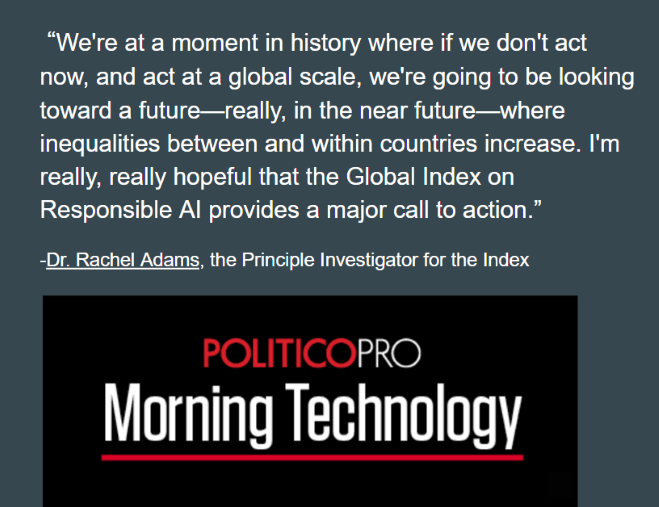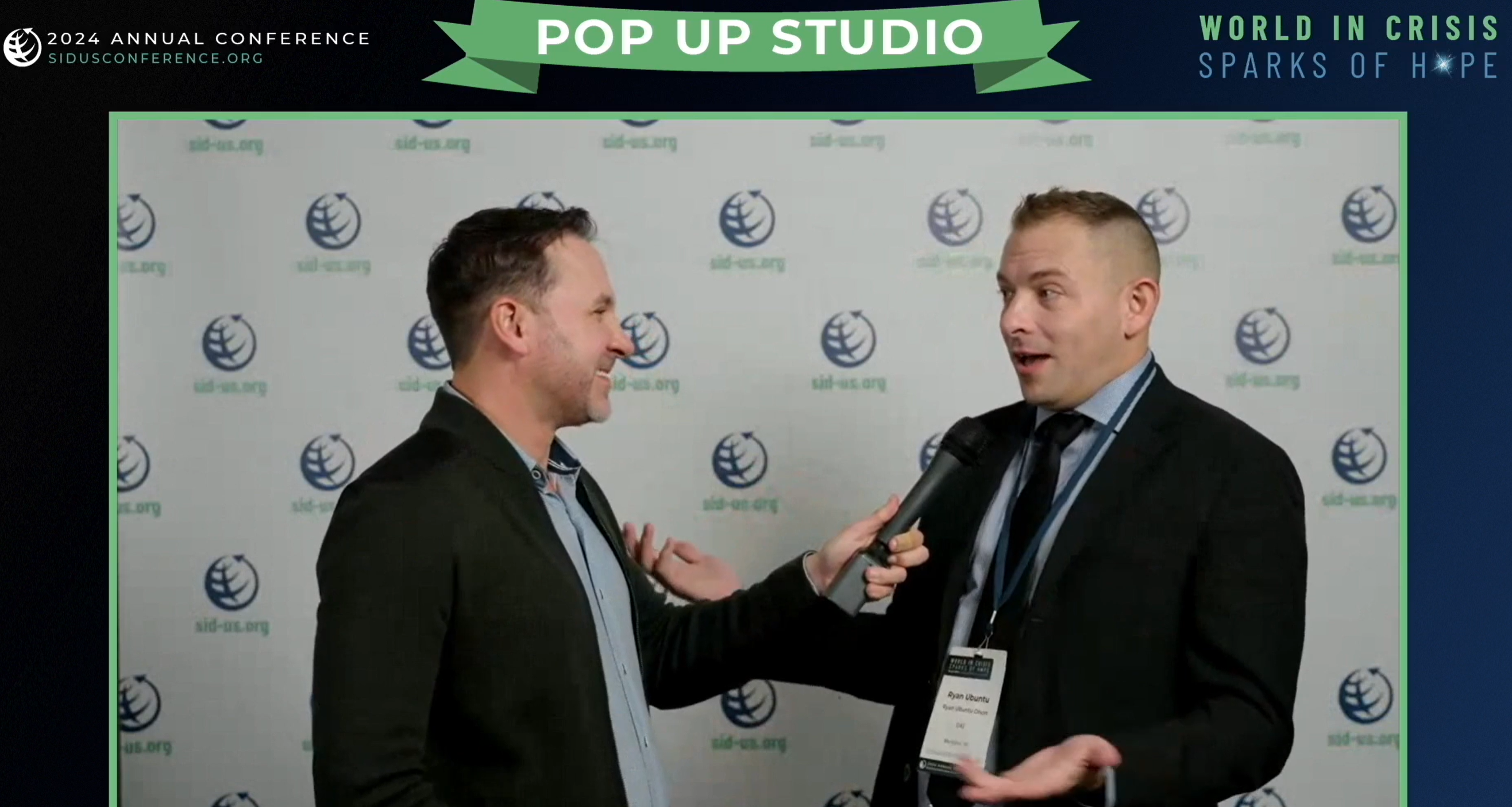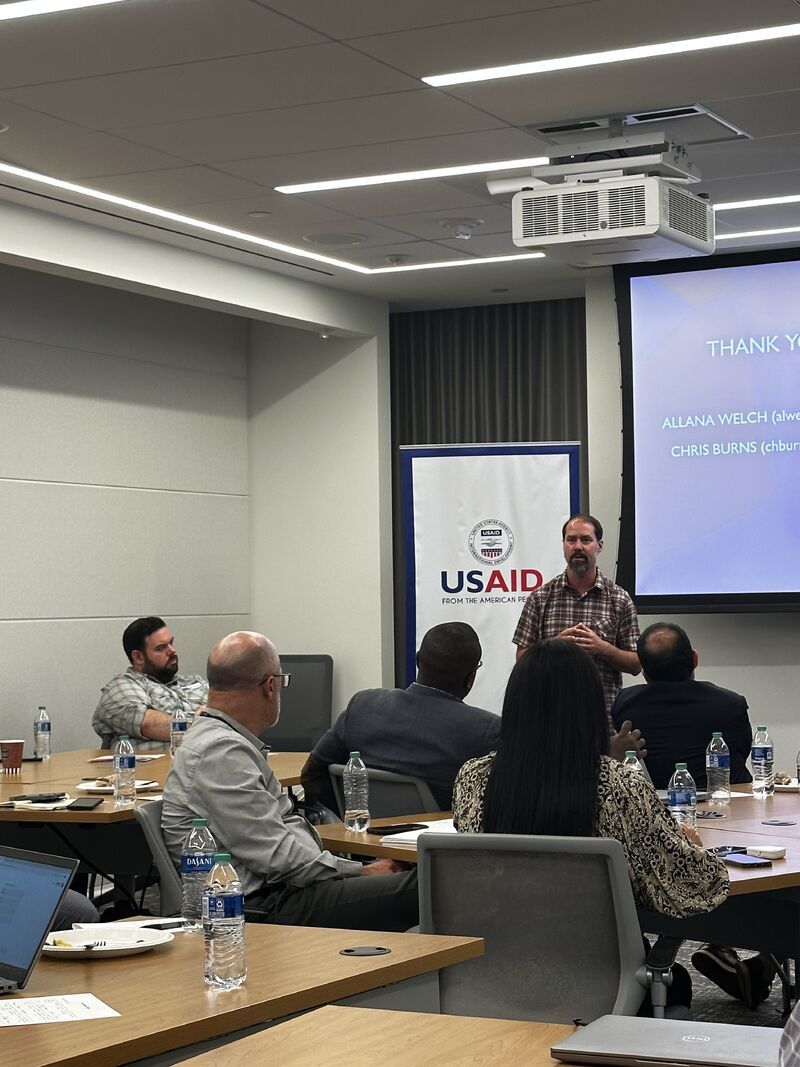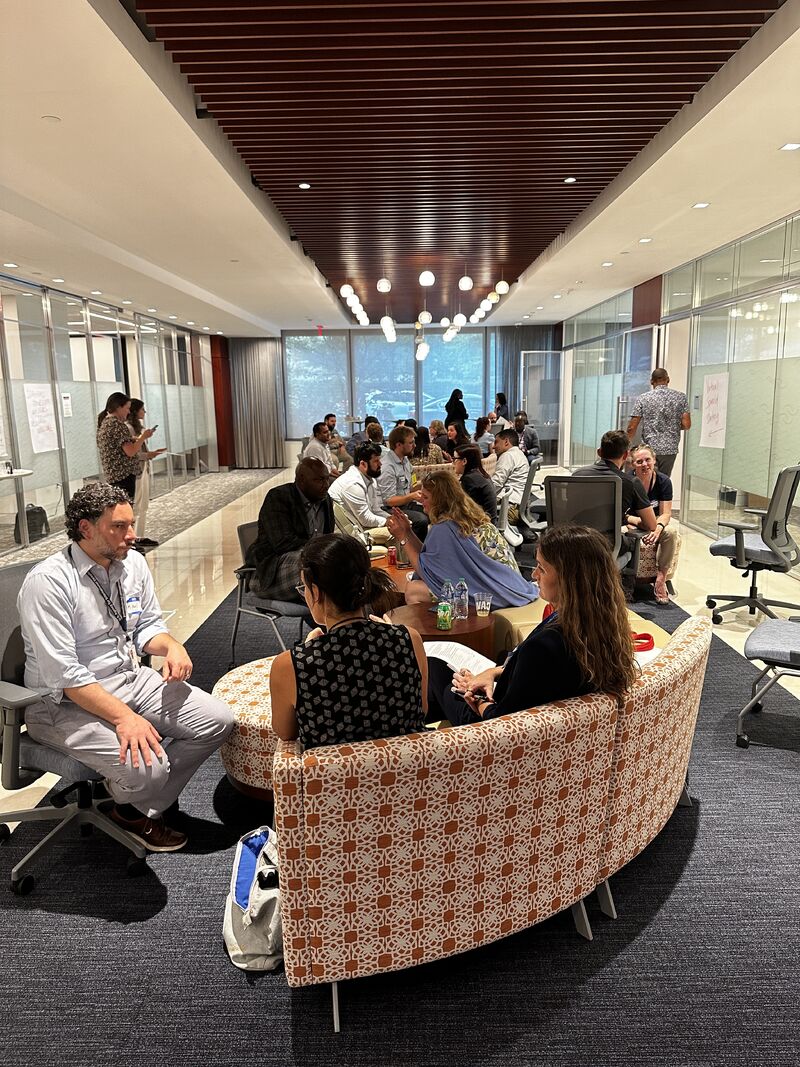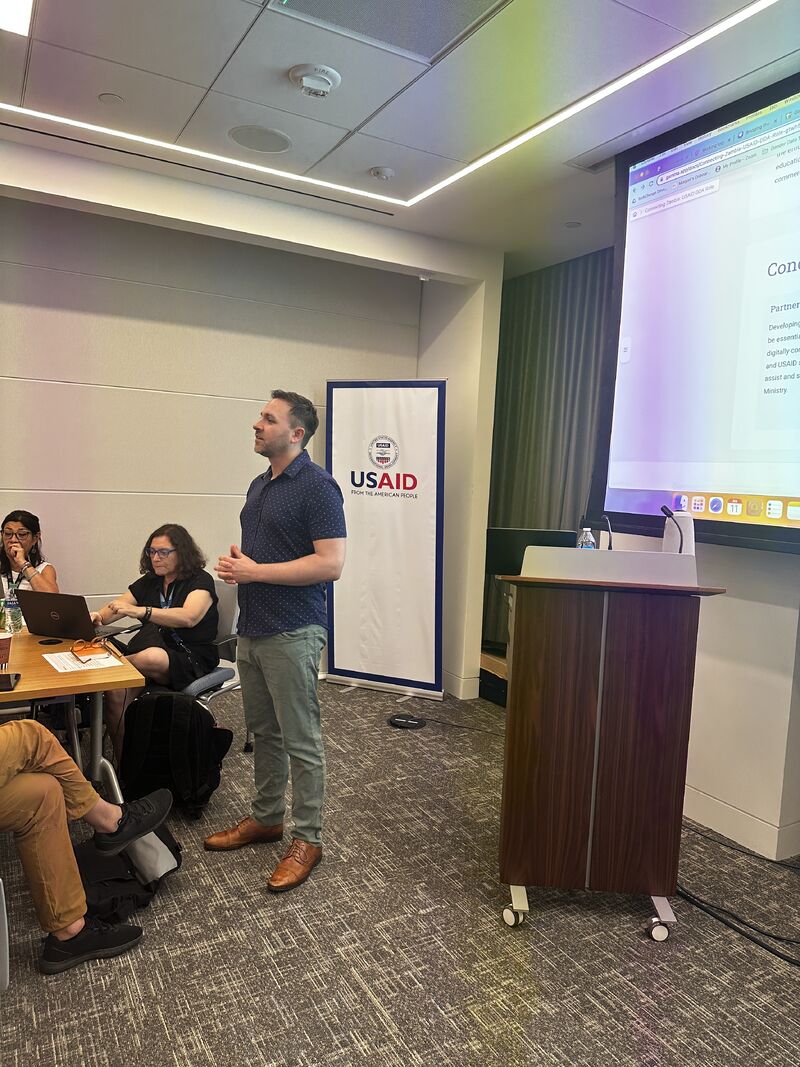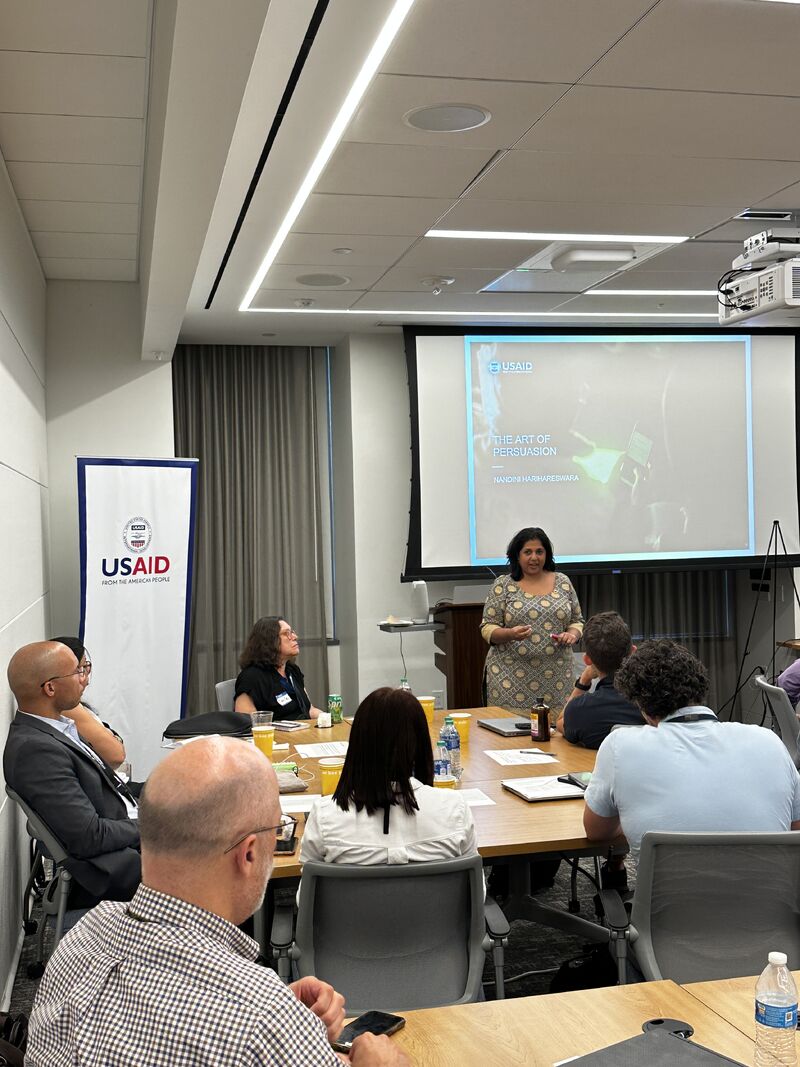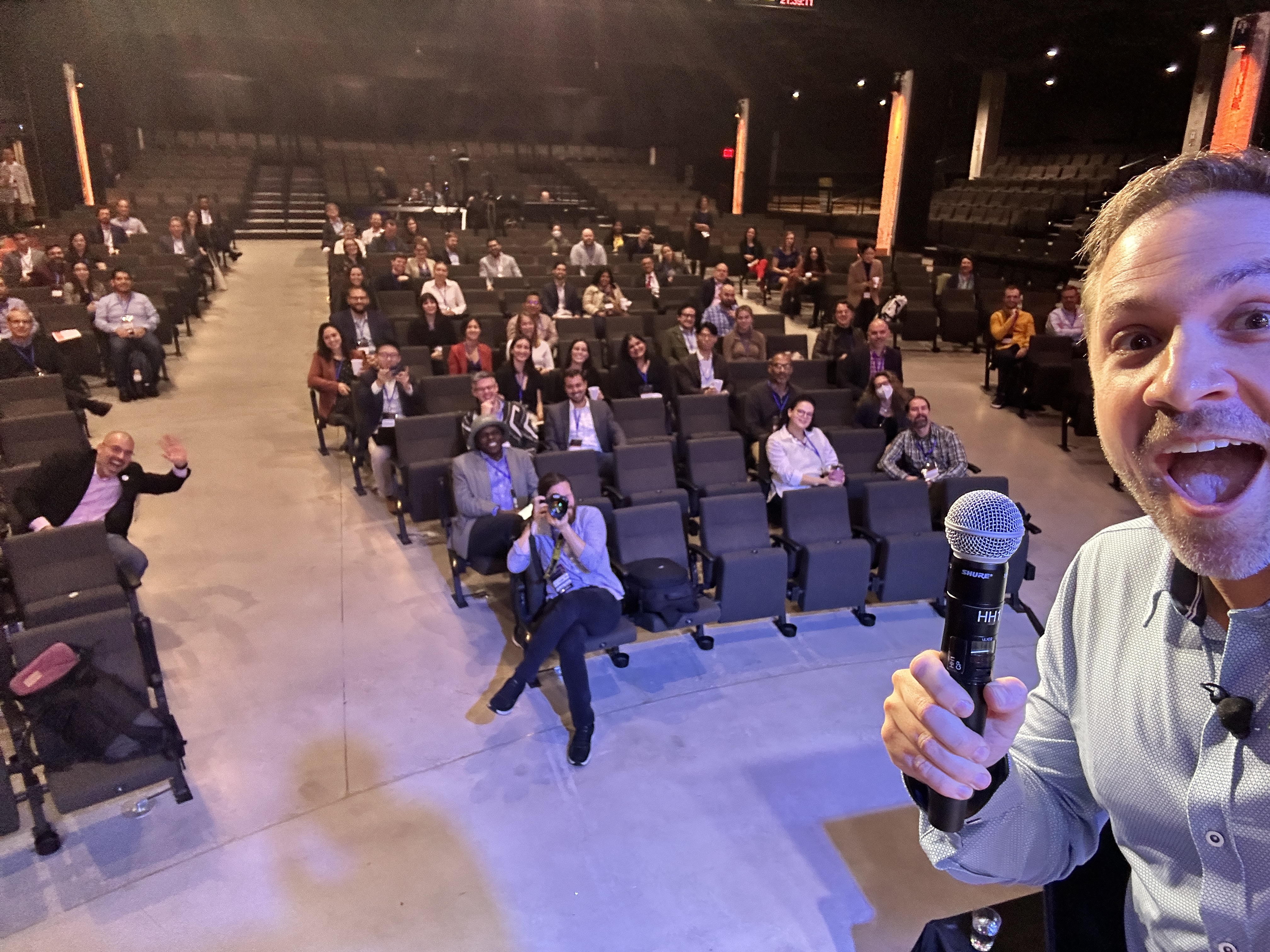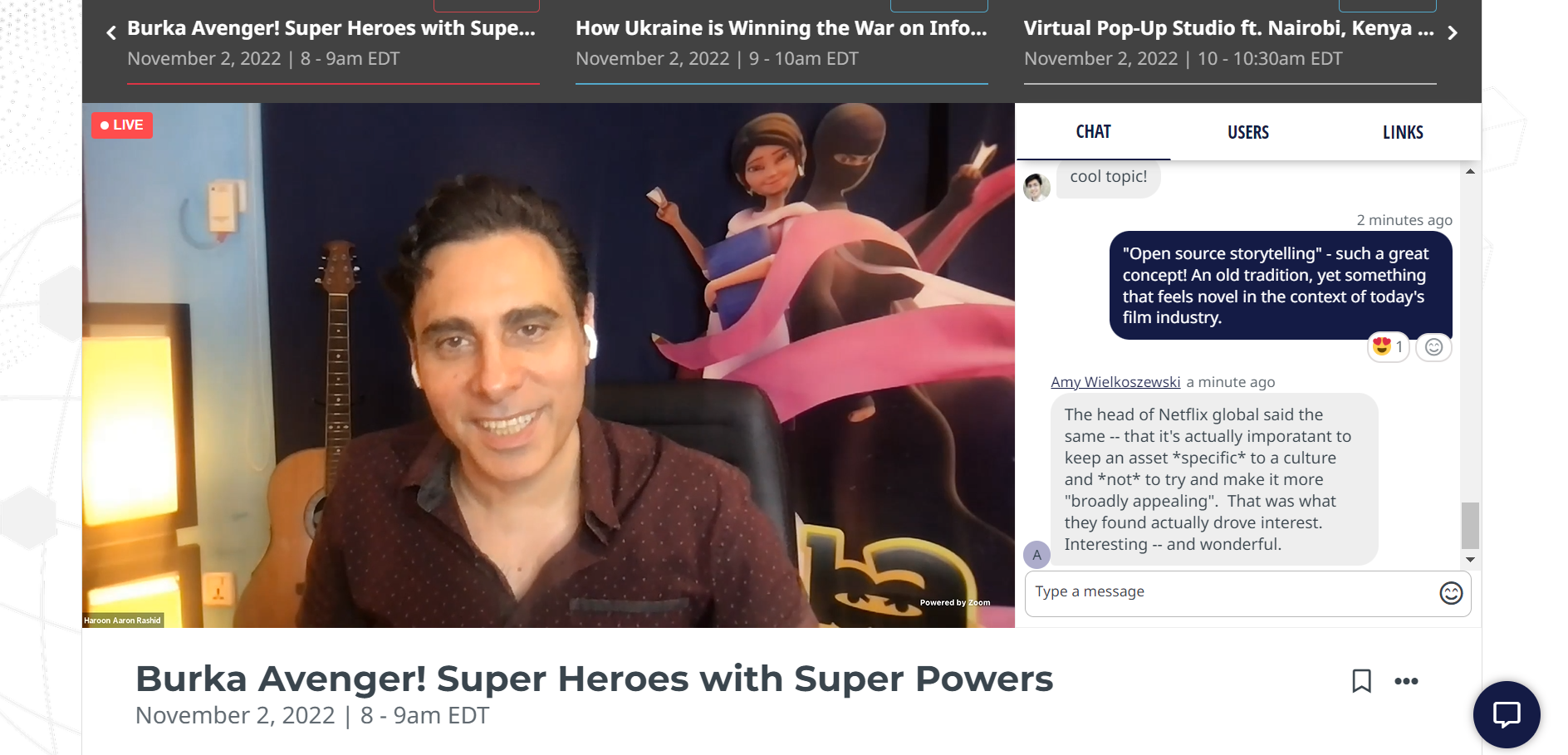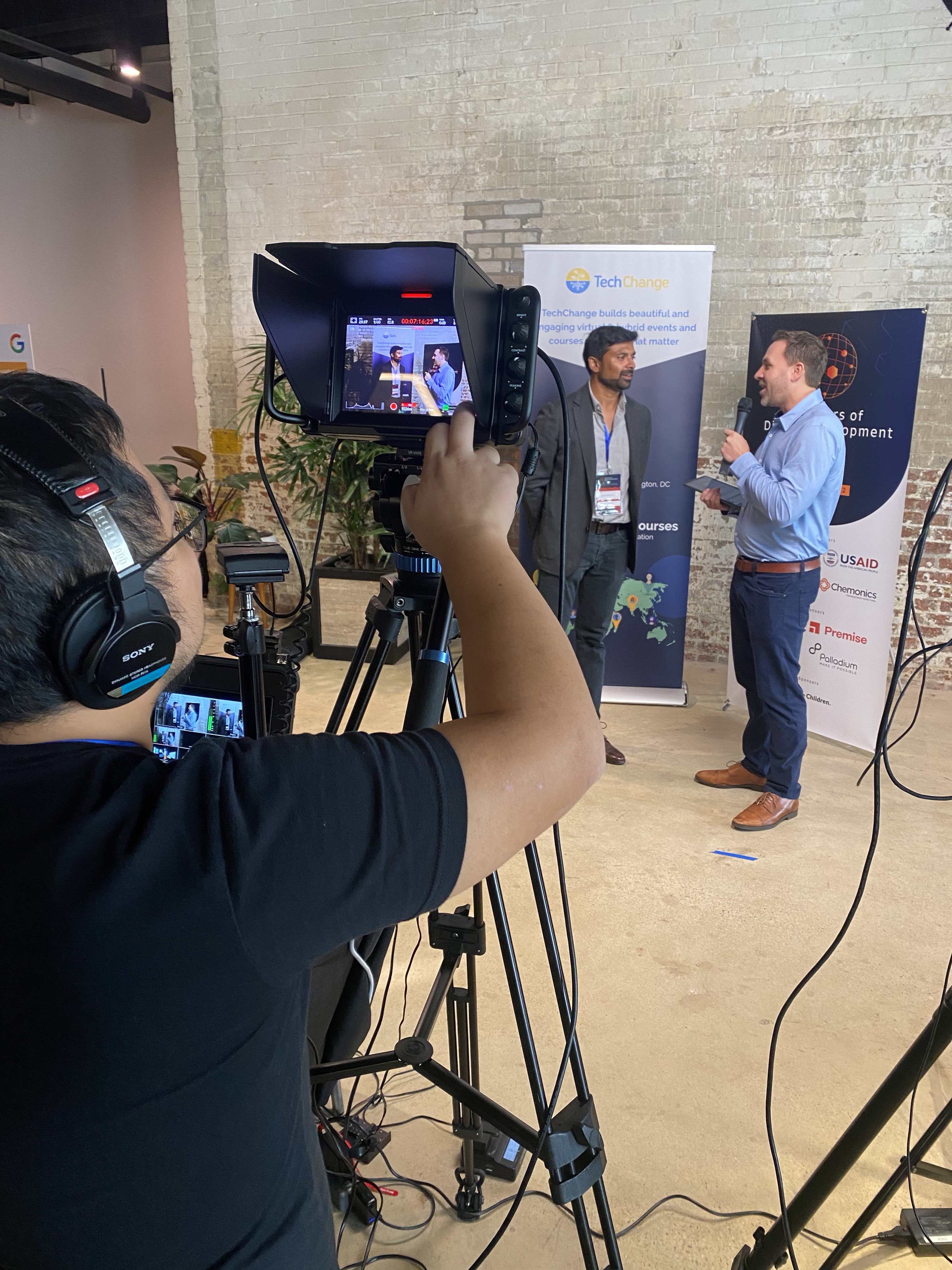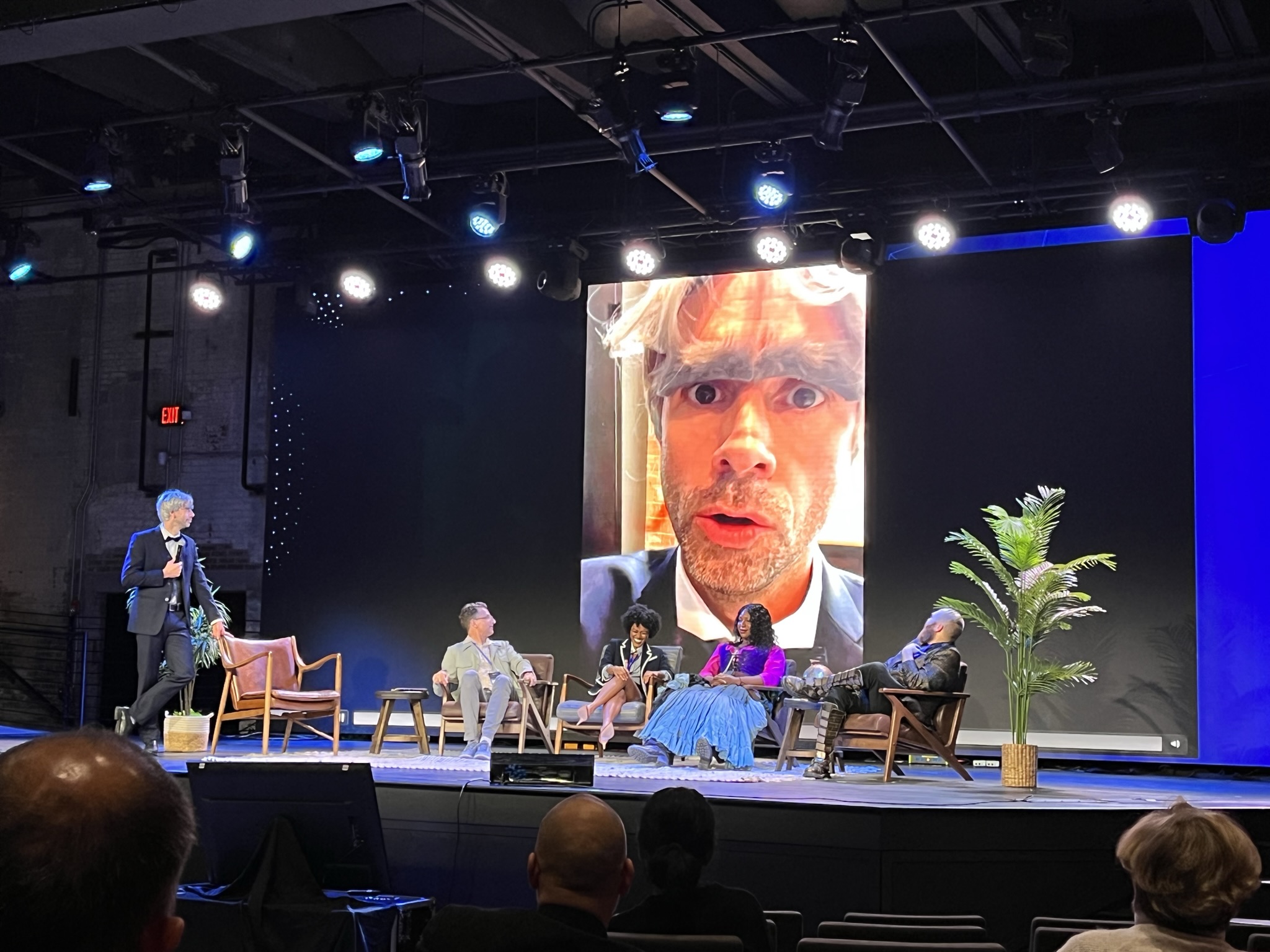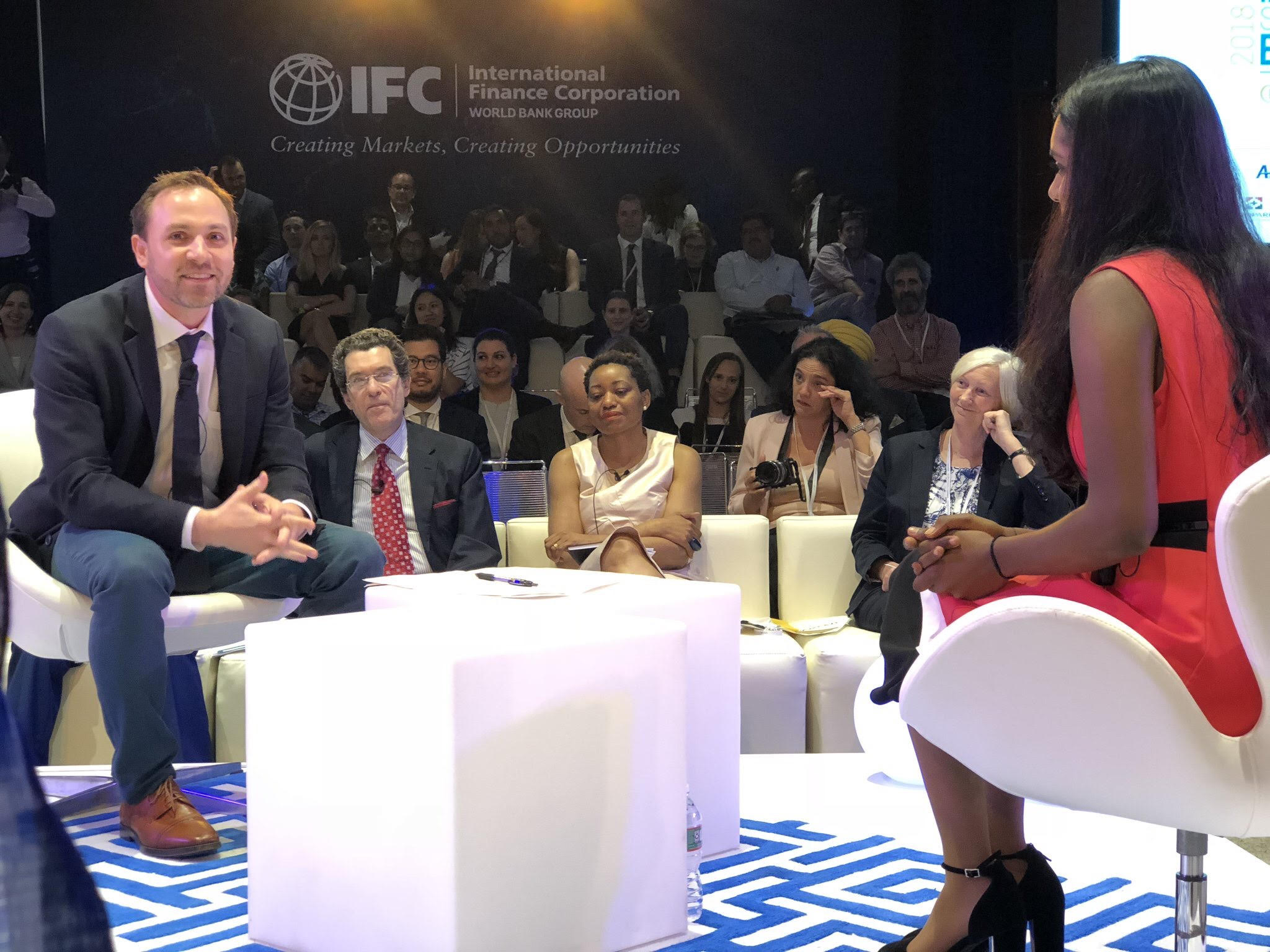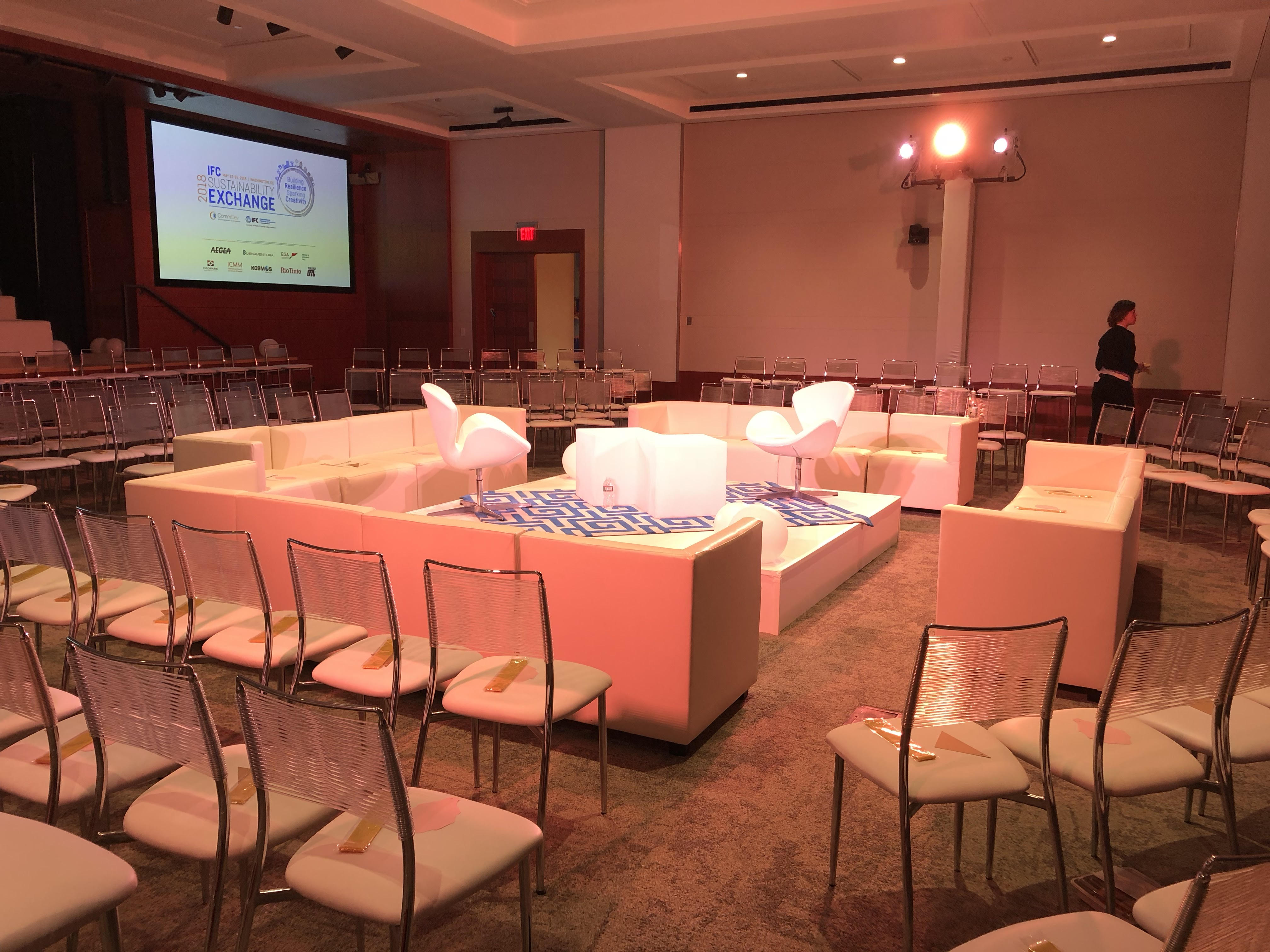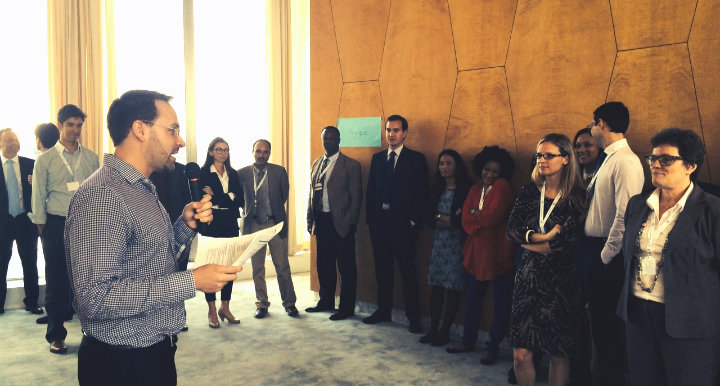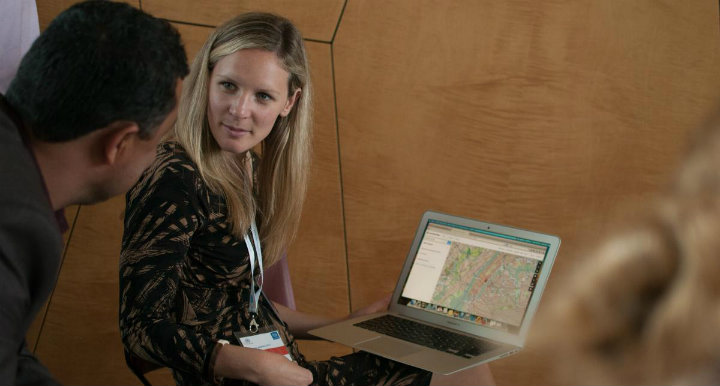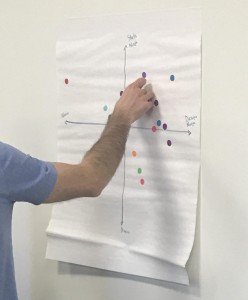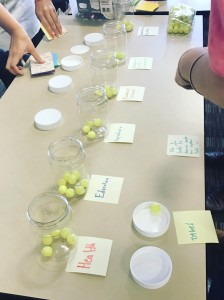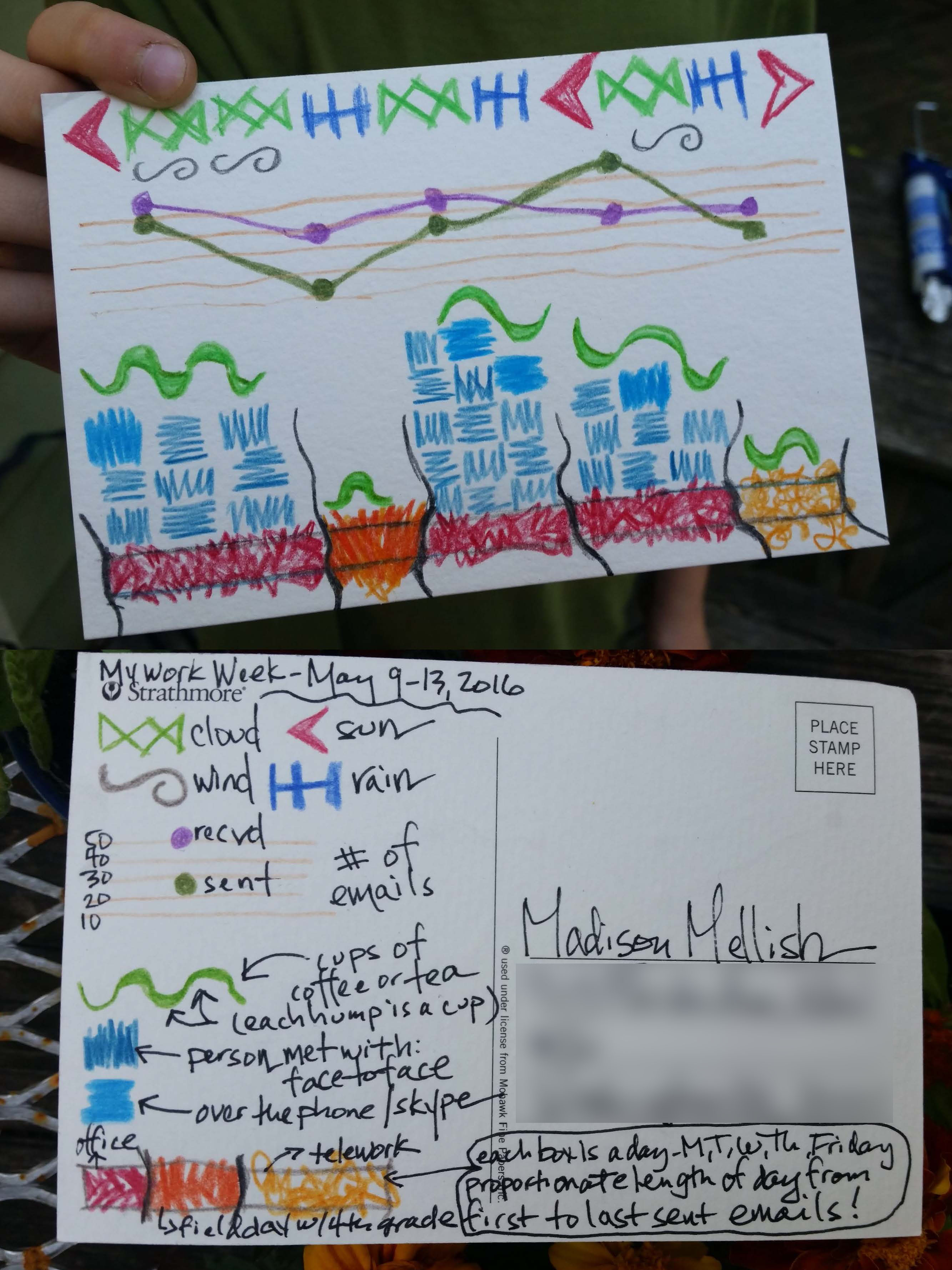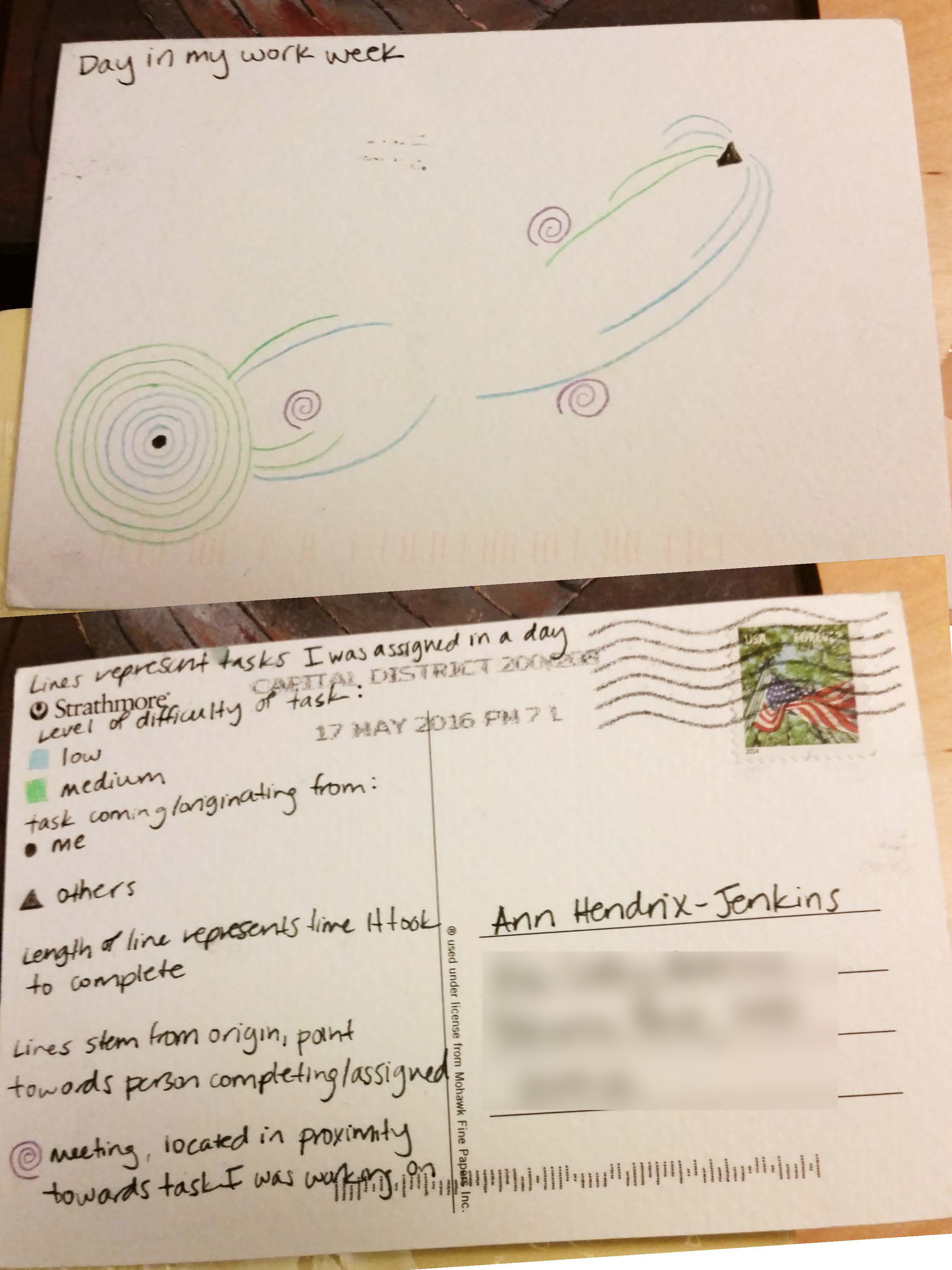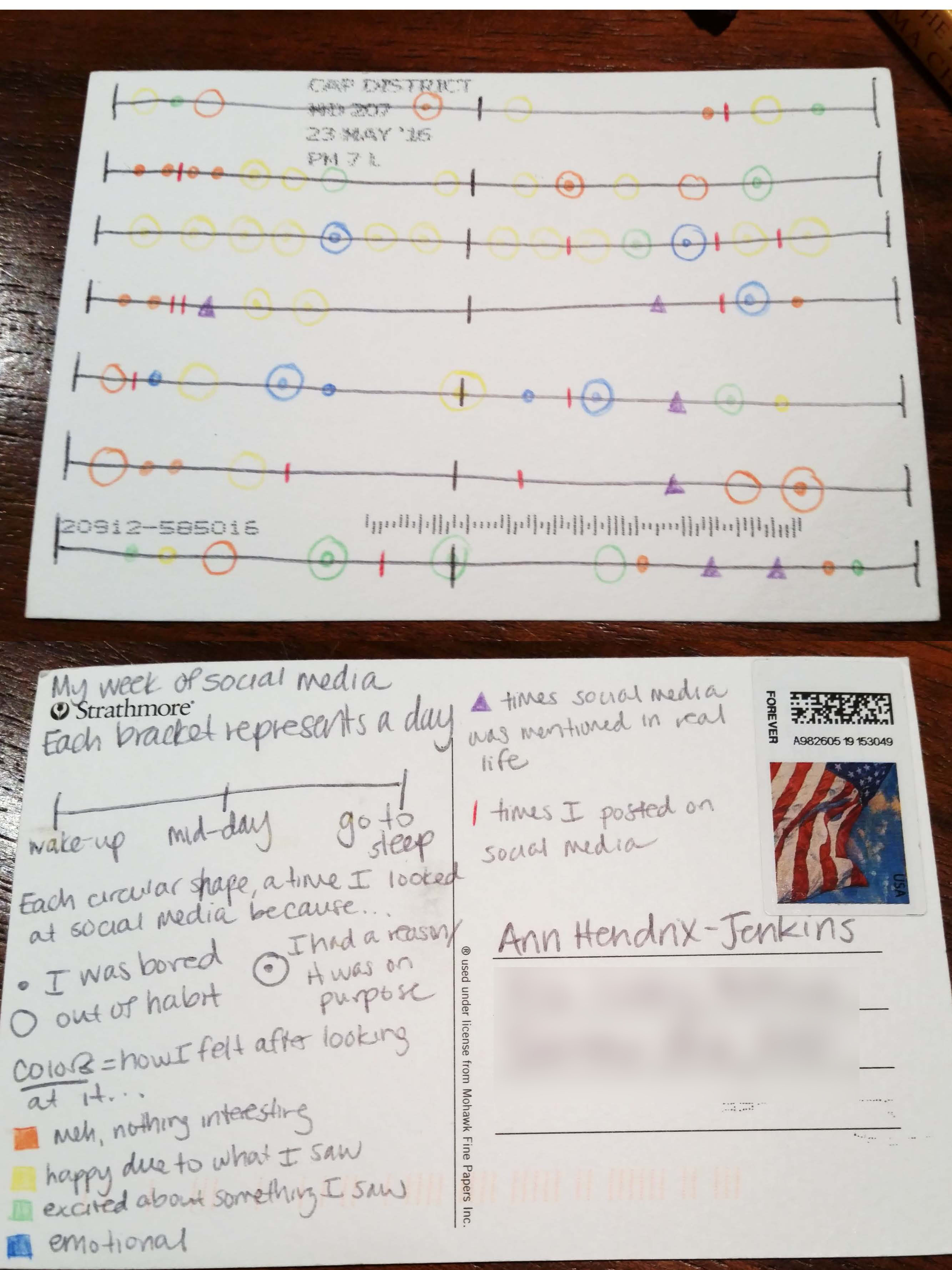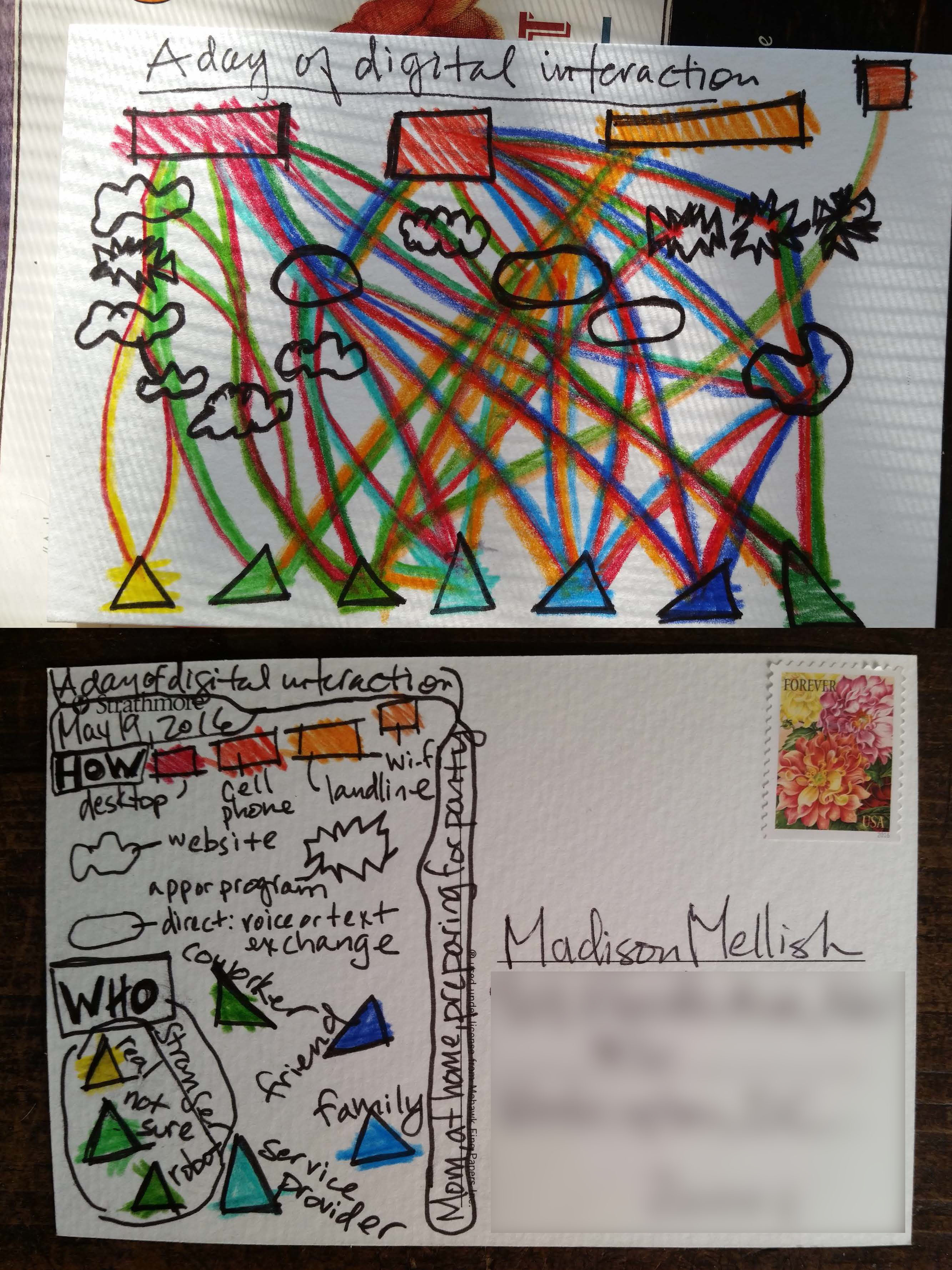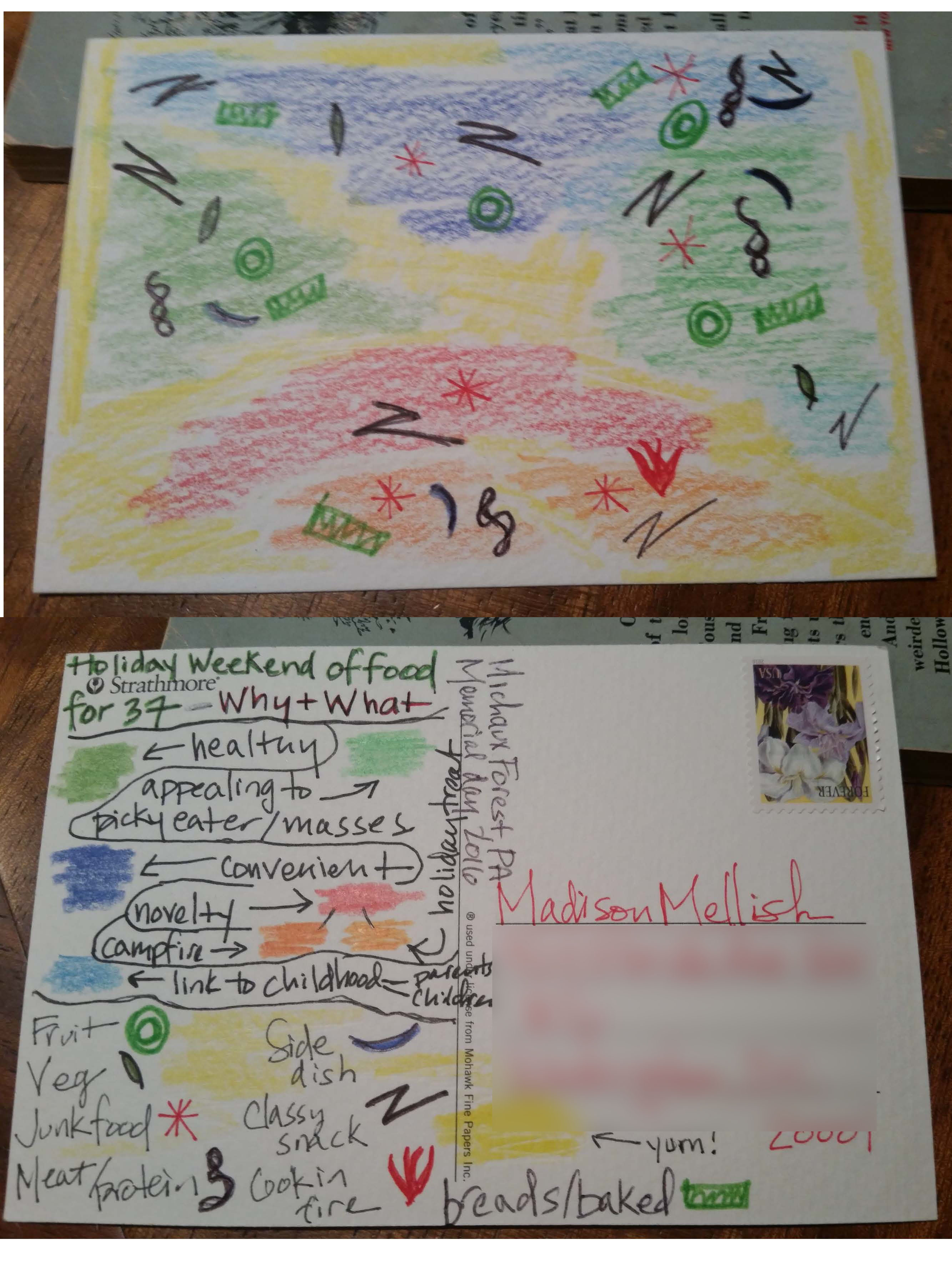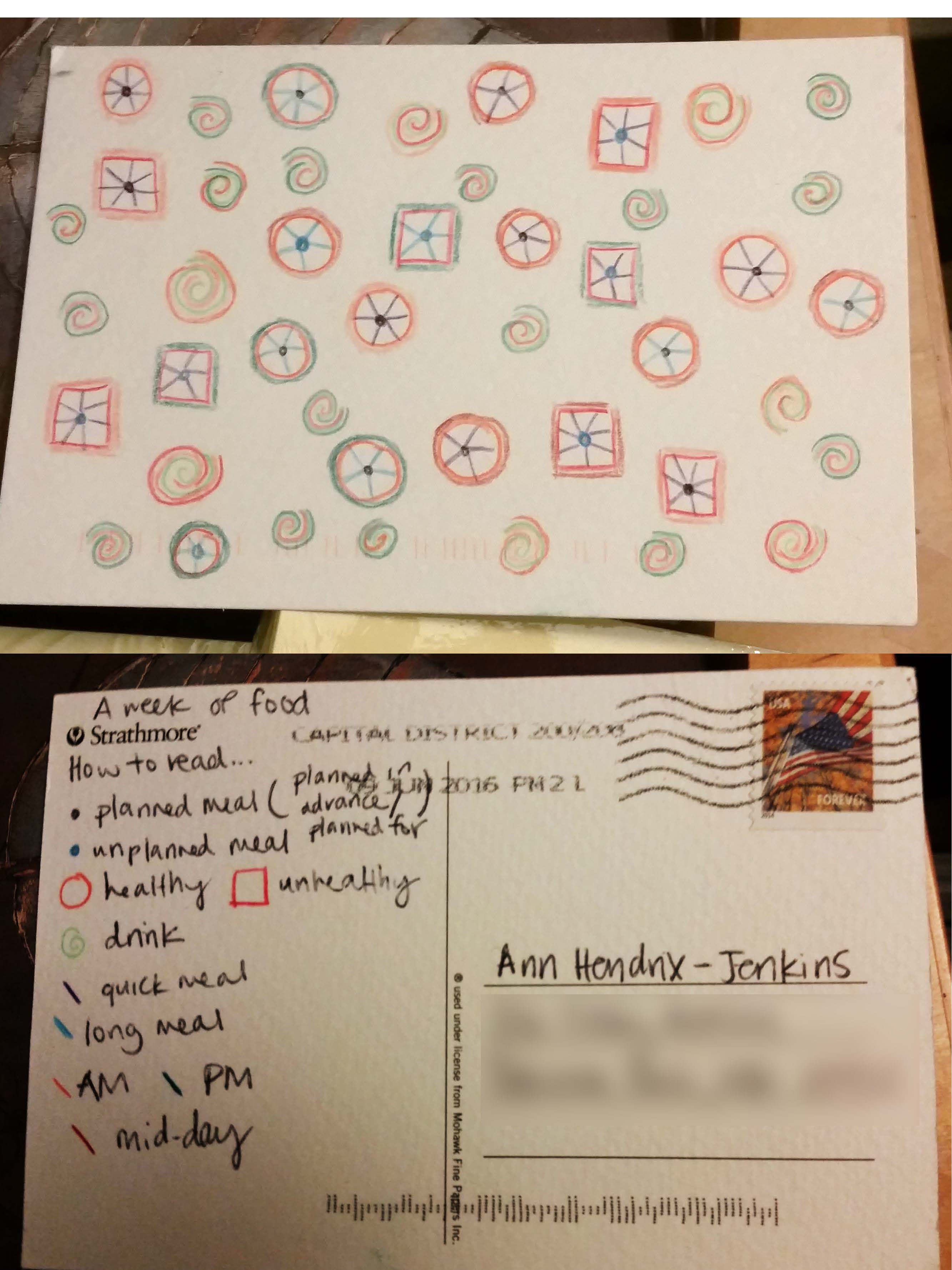By Nick Martin, TechChange CEO and Founder
Anyone who knows me is aware that connecting awesome social impact professionals to one another is one of my favorite things about working in this space. So I was delighted to chair a brand-new networking session at this year’s Global Digital Health Forum, specifically focused on connecting local innovators from Kenya with global funders of digital health. We’re talking CEOs and founders of some of Nairobi’s hottest ventures, paired with decision-makers from large funders such as USAID, the Gates Foundation, the Wellcome Trust, Madiro, and more.
The session, sponsored by the Endless OS Foundation, wasn’t an awkward deal desk or a formulaic speed networking series. Rather, it was a meaningful chance for two audiences who rarely get enough face time with each other to build foundational relationships using the 4 Corners methodology and a brand-new TechChange tool we’re calling Opening Lines, a relationship-building card game for digital health professionals.
Finding the Players, with a Little Help from our Friends
When it came to creating the list for attendees of the Innovator-Funder session, we scoured the registration rolls for the conference, even enlisting AI to help scan for founders and CEOs before checking out their ventures with a little side research. But when that wasn’t nearly specific enough, we turned to our friends at the Africa Health Business to identify local leaders of health-related NGOs and social ventures that would benefit from face-time with big-time funders. They’re focused on health organizations that are entering and expanding on the African continent, so had plenty of great connections to leverage for our invitations.
Rubayat Khan from the Endless Foundation was an amazing thought partner for building out the session– it was his idea that we focus on undercapitalized organizations, not those who are already swimming in seed funding from other philanthropic donors or impact investors. The foundation’s sponsorship of GDHF allowed us to position this session as an invite-only opportunity, adding to the prestige of the affair. Then a last- minute addition of funding from our long-time partners at PEPFAR meant that we could extend an offer of free registration to the invitees, making it a win-win for folks to join.
The list of participants wound up being an inspiring testament to the vibrancy of the health space in Kenya, including:
- Nafisa Jiddawi, Founder and CEO of WAJAMAMA, a women-led holistic health services organization in Zanzibar;
- Daniel Mutambi, CEO of Dawapay, a digital platform for pharmaceutical and laboratory sales; and
- Ikechukwu Anoke, CEO of Zuri Health, a Kenya-based mobile health platform.
Activating the Local Ecosystem for a Global Conference
The quality of representation in this session exemplifies the intentional focus on activating the local ecosystem that our TechChange events team took toward planning the first-ever African iteration of GDHF. Through our Nairobi-based Event Manager, Noni Gatere, and our partner, the Global Digital Health Network, we:
- Prioritized a program featuring the highest levels of Kenyan government, which included a keynote address by the Cabinet Secretary of Health as well as an address by the Cabinet Secretary of Information Technology.
- Engaged regional association HELINA, whose leaders were featured on multiple panels throughout the Forum.
- Built a tiger team of Social Media Ambassadors who reported their insights and reflections from every day of the conference.
- Reached out to partner organizations within TechChange’s global network with a presence in Kenya including our many generous sponsors.
- Leveraged a wide variety of information sharing networks such as the Kenyan Health Informatics Association, Village Reach and Healthtech Hub Africa.
- Supported the conference with an amazing group of volunteers from local universities and medical schools.
- Outreach with results– more than 300 GDHF attendees self-identified as Kenyan nationals.
There were a wealth of plenary sessions and workshops that highlighted local and pan-African expertise. And people loved it! While manning the Pop-Up Studio, the live video interview spot that we host throughout the conference, I heard again and again that folks appreciated this aspect of the conference…especially given that it was the first time we hosted it outside of Washington D.C.
Sparks and Innovations to Follow
When you pair social impact professionals from different sides of the space, magic happens. I saw it first hand, watching the energetic conversations that occurred during the Innovator-Funder session. Participants used the relationship-building cards to break through the typical small talk and connect on a deeper level. In the 4 corners activity, they “voted with their feet” to move to different sides of the room reflecting their answers to a wide variety of questions, including: What’s your professional super power? And How do you feel about AI right now? With options ranging from “you love it with all your heart” to “you’re terrified and have successfully avoided it so far.”
Whether it’s partnering on grant-funded projects or investing in new digital technologies with the potential to remake the digital health landscape Kenya and beyond, I can’t wait to follow the fruits of the relationships that began at GDHF, and see what local activations are in store for next year’s conference.

